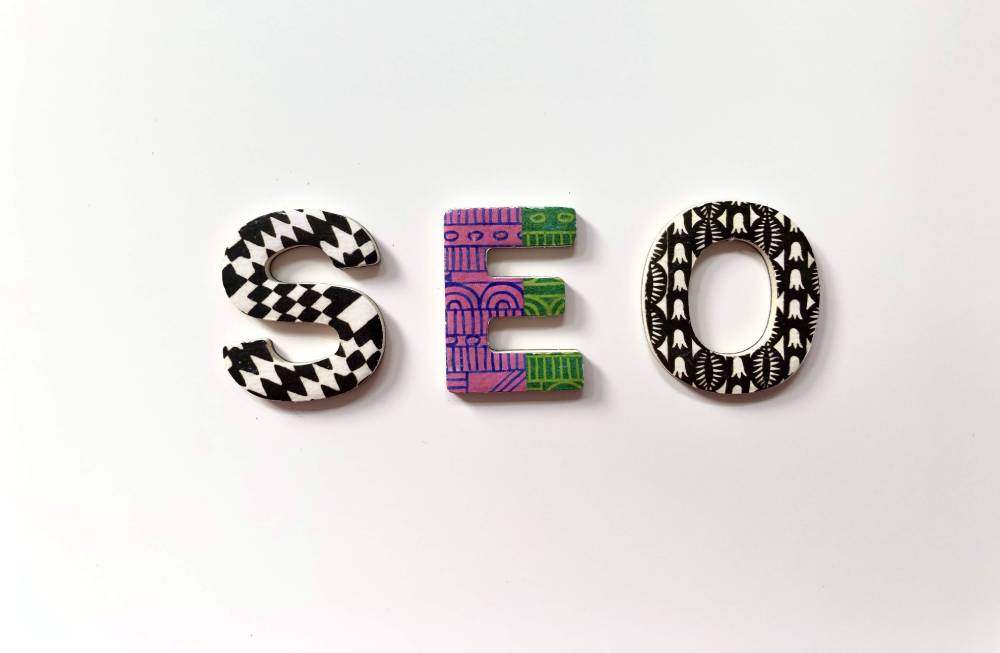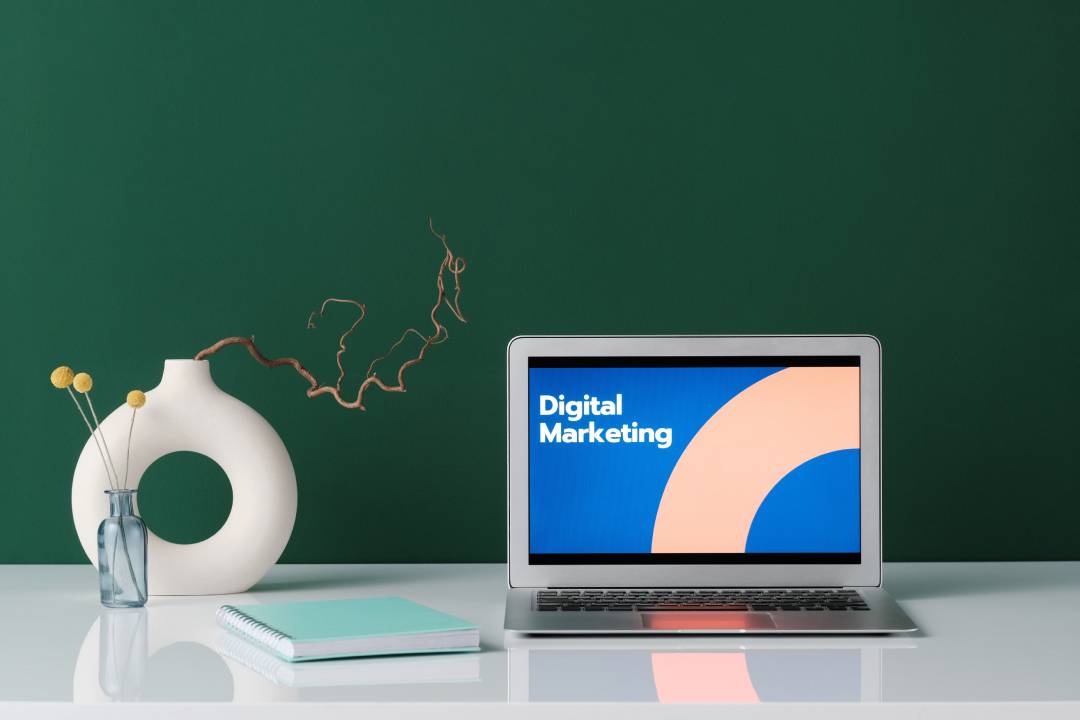Unlocking the Power of Digital Marketing: A Comprehensive Guide
In our rapidly transforming digital world, the importance of digital marketing cannot be overstated. As businesses endeavor to establish connections with their target audiences and carve out a distinctive presence in the ever-competitive online landscape, a deep understanding of digital marketing becomes not just an advantage, but a necessity.
This comprehensive guide is your gateway to delving into the intricacies of digital marketing. We’ll embark on a journey that covers a broad spectrum of knowledge, starting from the foundational principles and extending to advanced strategies that will set you apart as a digital marketing expert.
At its core, this guide recognizes that digital marketing is no longer a mere choice, but an essential element of any successful business or career. As our world increasingly revolves around online platforms for communication, information consumption, and commerce, the ability to effectively engage with and influence your target audience in the digital realm is what distinguishes thriving enterprises and professionals from the rest.
So, let’s dive deep into the multifaceted world of digital marketing, exploring its various facets, techniques, and strategies. We’re here to equip you with the tools, knowledge, and insights needed not just to survive but to thrive in the dynamic and ever-evolving digital arena.
Introduction
What is Digital Marketing?
Digital marketing encompasses a wide range of online strategies and tactics aimed at promoting products, services, or brands. It leverages digital channels such as websites, social media, email, and search engines to connect with potential customers. The beauty of digital marketing lies in its versatility. It allows businesses, regardless of their size or industry, to reach a global audience with precision and cost-effectiveness that traditional marketing methods can’t match.
Digital marketing isn’t limited by geographical boundaries, making it an indispensable tool for businesses looking to expand their reach beyond local markets. Whether you’re a small startup or a multinational corporation, digital marketing levels the playing field, allowing you to compete effectively.
Why Digital Marketing Matters
In today’s digital age, consumers spend a significant amount of their time online. To reach them effectively, businesses must establish a strong digital presence. Digital marketing provides a cost-effective way to engage with your audience, generate leads, and boost sales. Beyond cost-effectiveness, digital marketing offers unprecedented targeting capabilities. Unlike traditional advertising, where you cast a wide net and hope to catch some fish, digital marketing enables you to cast a finely tuned net to catch the exact fish you’re looking for. This precision can significantly impact your return on investment (ROI).
The importance of digital marketing is further underscored by its ability to provide measurable results. Unlike traditional advertising methods, where gauging success can be challenging, digital marketing allows you to track and analyze every aspect of your campaigns. You can measure the number of website visitors, conversion rates, email open rates, social media engagement, and more. This data-driven approach empowers you to refine your strategies continuously.

Different Aspects of Digital Marketing
Digital marketing is not a one-size-fits-all solution. It comprises various aspects, each serving a specific purpose in your overall strategy. Understanding these components is crucial to creating a successful digital marketing strategy. Let’s take a closer look at each aspect:
Content Marketing
Content marketing involves creating and distributing valuable, relevant, and consistent content to attract and engage a defined audience. High-quality blog posts, articles, videos, and infographics can attract and engage your target audience, ultimately driving conversions.
The key to successful content marketing is delivering content that resonates with your audience’s needs and interests. It’s not about pushing your products or services aggressively but about providing valuable information that solves problems or educates your audience. Over time, this builds trust and credibility, making your audience more likely to choose your brand when they are ready to make a purchase.
Social Media Marketing
Social media platforms have evolved from being mere communication tools to powerful marketing channels. Effective social media marketing involves creating engaging content, interacting with followers, and leveraging advertising options.
Each social media platform has its unique audience and strengths. For instance, Facebook is great for connecting with a broad audience, while Instagram excels in visual storytelling. LinkedIn is the go-to platform for B2B networking, and TikTok is perfect for reaching younger, trendier demographics. Your choice of platforms should align with your target audience and business goals.
Social media marketing also plays a pivotal role in brand building. It’s an opportunity to showcase your brand’s personality and values. Behind-the-scenes content, customer testimonials, and sneak peeks into your company culture can humanize your brand and resonate with your audience.

Email Marketing
Despite the rise of other digital channels, email marketing remains an effective way to nurture leads and maintain customer relationships. Craft engaging email campaigns that provide value to your subscribers and encourage action.
Email marketing allows you to create personalized experiences for your audience. You can segment your email list based on various criteria such as location, behavior, and preferences, ensuring that your messages are highly relevant to each recipient. Personalization not only increases engagement but also drives conversions.
SEO (Search Engine Optimization)
Search Engine Optimization (SEO) is the process of optimizing your website to rank higher in search engine results. It’s not just about keywords; it’s about creating a user-friendly, informative, and authoritative online presence.
Effective SEO involves several components, including:
- Keyword Research: Identifying the keywords and phrases that your target audience is using to search for information related to your products or services.
- On-Page Optimization: Optimizing individual web pages to improve their search engine ranking. This includes optimizing meta tags, headers, and content.
- Off-Page Optimization: Building high-quality backlinks from reputable websites to increase your site’s authority.
- Technical SEO: Ensuring that your website is technically sound and can be easily crawled and indexed by search engines.
- Local SEO: Optimizing your online presence for local searches, particularly important for businesses with physical locations.
SEO is not a one-time effort; it’s an ongoing process. Search engines continually update their algorithms, and your competitors are vying for the same top spots. Regularly auditing your website’s SEO performance and staying up-to-date with best practices are essential.

Paid Advertising with PPC (Pay-Per-Click)
Pay-Per-Click (PPC) advertising is a highly targeted way to reach potential customers. It allows you to bid on keywords and display ads to a specific audience. The beauty of PPC is that you only pay when someone clicks on your ad, making it a cost-effective advertising option.
Google Ads and Facebook Ads are two popular PPC platforms. To succeed in PPC, you need to conduct thorough keyword research, create compelling ad copy, and continuously optimize your campaigns. A well-structured PPC campaign can drive immediate traffic to your website and generate leads or sales.
The Basics of Digital Marketing
Websites and Their Role
Your website serves as the digital storefront for your business. It’s not merely an online brochure; it’s an interactive hub where potential customers learn about your offerings and make purchasing decisions. An effective website design and user experience are vital for success.
When designing your website, consider the user’s journey. Ensure that navigation is intuitive, pages load quickly, and the design is visually appealing. User experience directly impacts your bounce rate and conversion rates. If visitors find your website difficult to navigate or if it loads too slowly, they’re likely to leave and explore other options. Mobile optimization is also critical, given the prevalence of mobile device usage. Responsive web design ensures that your site looks and functions well on various screen sizes.
The content on your website should be well-structured and informative. Utilize headings and subheadings to make it easy for visitors to scan and find relevant information. Visual elements such as images and videos can enhance the user experience and convey information more effectively.
In addition to user experience, your website’s performance is a critical factor. A slow-loading website can deter visitors and negatively impact your search engine rankings. Regularly monitor your website’s performance and make necessary optimizations to ensure it loads quickly and efficiently.
Content Creation and Its Significance
Content is king in the digital marketing realm. It’s the currency of the internet. Quality content not only attracts visitors but also keeps them engaged and compels them to take action. This includes making a purchase, signing up for a newsletter, or sharing your content. Content comes in various forms, from blog posts and videos to podcasts and infographics.
Your content should not be overly promotional; instead, it should provide value to your audience. By addressing their pain points, answering their questions, and educating them, you can establish trust and authority in your niche. Consider the following strategies for effective content creation:
- Content Planning: Develop a content calendar that outlines topics, formats, and publication schedules. This ensures a consistent flow of content.
- Keyword Research: Conduct thorough keyword research to identify topics and phrases that are relevant to your audience and have search demand.
- Quality Over Quantity: It’s better to create fewer pieces of high-quality content than to produce a high volume of low-quality content. Focus on providing depth and value.
- Visual Content: Incorporate visual elements such as images, infographics, and videos to make your content more engaging.
- Audience Persona: Tailor your content to specific audience personas. Understand their needs, preferences, and pain points.
Successful content marketing goes beyond creating content; it involves promoting and distributing your content effectively. Utilize social media, email marketing, and SEO to ensure that your content reaches its intended audience.

The Power of Social Media
Social media platforms have evolved into more than just places to connect with friends and share cat videos. They’ve become powerful marketing tools. Effective social media marketing involves creating engaging content, interacting with followers, and leveraging advertising options.
Social media marketing offers several advantages:
- Brand Exposure: Social media platforms have billions of active users, providing an extensive reach for your brand.
- Engagement: Social media allows for direct interaction with your audience. Responding to comments, messages, and posts builds connections.
- Targeting: Social media advertising lets you reach specific demographics, interests, and behaviors, ensuring that your message reaches the right people.
- Visual Storytelling: Visual content, such as images and videos, can convey your brand’s story and values effectively.
Consistent and meaningful engagement on social media platforms can help you build a loyal following. Respond to comments promptly, ask questions, and share user-generated content to foster a sense of community. Use social media as a platform to showcase your brand’s personality and values. Behind-the-scenes content, customer testimonials, and sneak peeks into your company culture can humanize your brand and resonate with your audience.

Getting Found Online
Understanding SEO (Search Engine Optimization)
Search Engine Optimization (SEO) is the process of optimizing your website to rank higher in search engine results. It’s a multifaceted approach that involves on-page and off-page tactics. On-page SEO includes optimizing your content, meta tags, headers, and images. Off-page SEO focuses on building high-quality backlinks and establishing your website’s authority in your niche.
The importance of SEO lies in the fact that most online experiences begin with a search engine. When users search for information, products, or services, they tend to click on the top results. By optimizing your website for search engines, you increase your chances of ranking higher and attracting organic traffic.
Effective SEO involves:
- Keyword Research: Identifying relevant keywords and phrases that your target audience uses in search queries.
- On-Page Optimization: Optimizing individual pages on your website by incorporating relevant keywords and improving user experience.
- Technical SEO: Ensuring that your website is technically sound, mobile-friendly, and easily crawlable by search engines.
- Link Building: Building high-quality backlinks from authoritative websites to boost your website’s credibility.
Keep in mind that SEO is an ongoing process. Search engines continually update their algorithms, and your competitors are also vying for top positions. Regularly audit your website’s SEO performance, track your keyword rankings, and adapt your strategies accordingly.

The Importance of Keywords
Keywords are the phrases people use to search for information online. Effective keyword research is the foundation of a successful SEO strategy. It involves identifying relevant keywords that have sufficient search volume and align with your business goals.
Keyword research goes beyond merely finding the most popular keywords. It’s about understanding user intent. When users enter a search query, they have a specific goal in mind, whether it’s finding information, making a purchase, or seeking a solution to a problem. Your goal is to align your content with these user intents.
Incorporating keywords strategically into your content can significantly impact your search engine rankings. However, modern SEO is not just about stuffing keywords into your content; it’s about providing valuable, comprehensive, and user-friendly information that answers searchers’ questions. Google’s algorithms have become more sophisticated and now prioritize content that provides real value to users.
Paid Advertising with PPC (Pay-Per-Click)
Pay-Per-Click (PPC) advertising is a highly targeted way to reach potential customers. It allows you to bid on keywords and display ads to a targeted audience. This method can provide immediate visibility and drive traffic to your website.
PPC campaigns are often run on platforms like Google Ads and social media advertising. To succeed in PPC, you need to conduct thorough keyword research and create compelling ad copy. A well-structured PPC campaign can drive immediate traffic to your website and generate leads or sales.
PPC advertising offers several advantages:
- Immediate Results: Unlike SEO, which takes time to see results, PPC campaigns can generate traffic and leads quickly.
- Targeting: You can specify who sees your ads based on factors such as keywords, location, demographics, and even user behavior.
- Budget Control: You have full control over your ad spend, allowing you to set daily or monthly budgets.
To excel in PPC, you need to continuously monitor and optimize your campaigns. This includes adjusting bid strategies, refining ad copy, and conducting A/B testing to determine what resonates best with your audience.

Connecting with Your Audience
Email Marketing Made Simple
Email marketing remains one of the most cost-effective digital marketing channels. It’s a direct line of communication between you and your audience. Effective email marketing involves segmenting your email list, crafting personalized and engaging content, and automating campaigns to nurture leads and retain customers.
Email marketing allows you to create personalized experiences for your audience. By segmenting your email list, you can send targeted content that speaks directly to each recipient’s needs and interests. Personalization not only increases engagement but also drives conversions.
The key is not to overwhelm your subscribers with constant promotions but to provide them with valuable information, offers, and solutions to their problems. Consider the following email marketing strategies:
- Welcome Series: Greet new subscribers with a series of welcome emails that introduce your brand, provide valuable resources, and set expectations.
- Drip Campaigns: Nurture leads through automated drip campaigns that deliver relevant content over time, gradually moving them through the sales funnel.
- Abandoned Cart Emails: Recover potential lost sales by sending emails to users who abandoned their shopping carts.
- Newsletter Updates: Keep your audience informed about industry news, product updates, and company developments.
Email marketing also allows for testing and optimization. You can experiment with different subject lines, email content, and send times to determine what resonates best with your audience. Additionally, analyzing email open rates, click-through rates, and conversion rates provides valuable insights into your campaign’s performance.
Engaging on Social Media
Social media isn’t a one-way street. It’s about building relationships and engaging with your audience. Consistent and meaningful engagement on social media platforms can help you build a loyal following.
Respond to comments promptly, ask questions, and share user-generated content to foster a sense of community. Use social media as a platform to showcase your brand’s personality and values. Behind-the-scenes content, customer testimonials, and sneak peeks into your company culture can humanize your brand and resonate with your audience.
Effective social media engagement strategies include:
- Content Calendar: Plan your social media posts in advance to maintain consistency and ensure that your content aligns with your brand’s messaging.
- Social Listening: Monitor social media conversations related to your brand or industry. Respond to mentions and engage in relevant discussions.
- User-Generated Content: Encourage your audience to create and share content related to your brand. Reposting user-generated content builds trust and loyalty.
- Influencer Collaborations: Partner with influencers who align with your brand values and target audience to expand your reach.
Social media is a dynamic space, and trends and algorithms can change quickly. Staying up-to-date with platform updates and adjusting your social media strategy accordingly is essential for long-term success.

Building Your Online Community
Creating an online community around your brand can lead to brand advocacy and customer loyalty. An online community provides a space for your most dedicated customers to connect, share their experiences, and become brand ambassadors. This could be in the form of a private Facebook group, a dedicated forum on your website, or even regular virtual events.
Building an online community involves the following steps:
- Choose the Right Platform: Select a platform or format that suits your audience and objectives. Consider whether a forum, social media group, or another platform is the best fit.
- Create Engaging Content: Provide valuable content and discussions that encourage members to participate and share their insights.
- Moderation: Ensure a positive and respectful environment by moderating discussions and addressing any inappropriate behavior promptly.
- Exclusive Perks: Offer community members exclusive benefits, such as early access to products, discounts, or access to expert insights.
- Engage Actively: Actively participate in discussions, answer questions, and acknowledge members’ contributions.
A thriving online community can be a powerful asset for your brand. It can serve as a source of user-generated content, provide valuable feedback, and foster brand loyalty. By nurturing your community, you create a dedicated group of brand advocates who willingly promote your products or services.
Measuring Your Success
Key Metrics to Track
Measuring the success of your digital marketing efforts is crucial for making data-driven decisions and optimizing your strategies. Several key metrics help you gauge your performance:
- Website Traffic: Monitor the number of visitors to your website and their behavior. Analyze which pages are most visited and how long visitors stay on your site.
- Conversion Rates: Track how many visitors take the desired actions on your site, such as making a purchase, filling out a contact form, or signing up for a newsletter.
- Bounce Rate: Analyze the percentage of visitors who leave your site without interacting with it. A high bounce rate may indicate issues with your website or content.
- Click-Through Rate (CTR): Measure the effectiveness of your email marketing and PPC campaigns. CTR indicates how many recipients or viewers take action based on your content.
- Social Media Engagement: Evaluate likes, shares, comments, and overall engagement on your social media posts. Engagement metrics reflect how well your content resonates with your audience.
Analyzing Your Digital Marketing Efforts
Monitoring your metrics is just the first step. To make your digital marketing efforts more effective, you need to analyze the data and derive actionable insights. Here’s how you can approach the analysis of your digital marketing efforts:
- Identify Trends: Look for patterns and trends in your data. Are there specific days or times when your website receives more traffic? Do certain types of content perform better than others?
- Segmentation: Segment your data to gain deeper insights. For example, segment your email marketing data by subscriber demographics to understand which segments respond best to certain content.
- Conversion Funnel Analysis: Examine your conversion funnel to identify bottlenecks or drop-offs. Where are users abandoning the funnel, and why?
- Competitive Analysis: Keep an eye on your competitors and their digital marketing strategies. What are they doing differently? Are there opportunities to improve your approach based on their successes or failures?
- A/B Testing: Conduct A/B tests to compare the performance of different elements, such as email subject lines, ad copy, or website design. A/B testing helps you determine what resonates best with your audience.
By regularly analyzing your digital marketing data, you can make informed decisions to optimize your strategies. Remember that digital marketing is an iterative process, and continuous improvement is key to achieving better results over time.

Common Challenges
Avoiding Common Mistakes
While digital marketing offers incredible opportunities, it’s not without its challenges. Avoiding common mistakes can help you navigate these challenges effectively:
- Neglecting Mobile Optimization: With the majority of internet traffic coming from mobile devices, having a mobile-responsive website is non-negotiable. Failing to optimize for mobile can result in a poor user experience and lost opportunities.
- Ignoring Content Quality: Content quality matters more than quantity. Avoid churning out low-quality content in bulk. Focus on creating high-value content that addresses your audience’s needs and interests.
- Overlooking Local SEO: If you have a physical location or serve local customers, neglecting local SEO can hinder your visibility in local search results. Ensure your business is listed accurately on local directories, and encourage customer reviews.
- Ignoring Technical SEO: Technical SEO issues, such as slow page loading times or broken links, can harm your website’s ranking and user experience. Regularly conduct technical audits to identify and fix these issues.
- Failing to Track ROI: Without measuring the return on your digital marketing investment, you won’t know which strategies are effective and which need adjustment. Implement tracking mechanisms to attribute conversions to specific marketing channels.
Adapting to Changes
The digital landscape is a dynamic one. What works today may become obsolete tomorrow. Adapting to changes is essential for staying competitive. Consider these evolving trends and challenges:
- Voice Search: The rise of voice search and smart speakers has changed how people search for information online. Optimizing your content for voice search is now a consideration.
- Privacy Regulations: Privacy regulations like GDPR and CCPA have tightened data protection rules, affecting how businesses collect and use customer data. Stay compliant with these regulations to avoid legal issues.
- Algorithm Updates: Search engines and social media platforms continually update their algorithms. Staying informed about these changes and adjusting your strategies accordingly is vital.
- Emerging Technologies: Keep an eye on emerging technologies such as artificial intelligence (AI) and augmented reality (AR). These technologies may offer new opportunities for digital marketing.
- Consumer Behavior Shifts: Pay attention to shifts in consumer behavior and preferences. Changes in how people shop, communicate, and consume content can impact your digital marketing strategies.
- Competition: The digital landscape is crowded, and competition is fierce. Keep a close watch on your competitors and look for opportunities to differentiate your brand.
Managing Your Online Reputation
Your online reputation can make or break your brand. With the proliferation of online reviews and social media discussions, customer opinions carry more weight than ever before. Managing your online reputation involves actively monitoring reviews and mentions of your brand.
Respond to both positive and negative feedback professionally and promptly. Address customer concerns, resolve issues, and showcase your commitment to customer satisfaction. Building a positive online reputation not only fosters trust among potential customers but also strengthens loyalty among existing ones.
Here are some tips for managing your online reputation effectively:
- Monitor Your Online Presence: Set up Google Alerts and social media listening tools to track mentions of your brand.
- Respond Promptly: Acknowledge both positive and negative feedback promptly and professionally.
- Encourage Positive Reviews: Encourage satisfied customers to leave positive reviews on platforms like Google My Business and Yelp.
- Address Negative Feedback: When faced with negative reviews or comments, respond with empathy and a solution-oriented approach. Avoid engaging in online arguments.
- Showcase Positive Stories: Share positive customer stories and testimonials on your website and social media channels.
Remember that your online reputation is an ongoing effort. Building trust takes time, but it can be easily damaged by negative online experiences. By actively managing your online reputation, you can enhance your brand’s credibility and goodwill.

Frequently Asked Questions (FAQs)
What exactly is digital marketing?
Digital marketing encompasses all online strategies used by businesses to promote their products, services, or brands. It includes activities like content marketing, SEO, social media marketing, email marketing, and paid advertising. The goal is to connect with and engage a target audience in the digital realm.
How can I improve my website?
Improving your website involves several key steps. First, focus on user experience by ensuring intuitive navigation, fast loading times, and mobile optimization. Regularly update your content to provide value and relevance to your audience. Implement SEO best practices to improve your site’s visibility in search engine results.
What are some easy SEO tips?
Effective SEO requires a multifaceted approach, but here are some easy tips to get you started:
Conduct keyword research to identify relevant search terms.
Optimize your content by including keywords naturally.
Use descriptive meta tags and headers.
Build high-quality backlinks from reputable websites.
Stay up-to-date with SEO best practices and algorithm changes.
Do I need to be on every social media platform?
No, it’s not necessary to be on every social media platform. Your choice of platforms should align with your target audience and business goals. It’s better to excel on a few platforms where your audience is most active than to spread yourself too thin across multiple platforms.
How do I know if my digital marketing is working?
To determine the effectiveness of your digital marketing efforts, monitor key metrics such as website traffic, conversion rates, social media engagement, and ROI. Regularly analyze the data and use it to refine your strategies for better results.
Conclusion
Summing Up Key Points
Digital marketing is a dynamic and essential part of modern business. By understanding its various aspects and staying adaptable, you can harness its power to grow your brand. Remember, it’s not about following trends blindly but about making informed decisions based on data and customer insights.
Embracing the World of Digital Marketing
In today’s digital age, embracing the world of digital marketing is not just an option; it’s a necessity. Stay informed, be creative, and connect with your audience to succeed in the ever-evolving online landscape. As technology continues to advance and consumer behaviors evolve, digital marketing will remain at the forefront of business growth strategies. Embrace the challenges and opportunities it presents, and you’ll be well-positioned for success in the digital era.
This comprehensive guide to digital marketing should provide you with a solid foundation to navigate the digital landscape effectively. Whether you’re a business owner looking to expand your online presence or a marketer aiming to enhance your skills, the world of digital marketing offers endless opportunities for growth and engagement. Stay informed, stay creative, and continue to adapt to the ever-changing digital landscape to succeed in the digital era.






